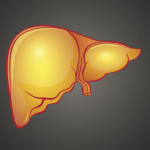The injectable hormone Egrifta (tesamorelin) can improve liver health in people with HIV who have non-alcoholic fatty liver disease (NAFLD), according to a study published in The Lancet HIV.
The research team behind the study was led by Colleen M. Hadigan, MD, a senior research physician in the laboratory of immunoregulation at the National Institute of Allergy and Infectious Disease (NIAID), and Steven K. Grinspoon, MD, chief of the metabolism unit at Massachusetts General Hospital in Boston.
“Many people living with HIV have overcome significant obstacles to live longer, healthier lives, though many still experience liver disease,” NIAID director Anthony S. Fauci, MD, said in a press release. “It is encouraging that [Egrifta], a drug already approved to treat other complications of HIV, may be effective in addressing non-alcoholic fatty liver disease.”
Egrifta is a synthetic version of human growth hormone–releasing factor. It directs the pituitary gland in the brain to produce growth hormone, which both builds muscle and breaks down fat. It was approved in 2010 as a treatment for lipodystrophy, or abnormal fat distribution, which is a side effect of some of the earliest antiretrovirals (ARVs) to hit the market.
The study enrolled 61 people with HIV and NAFLD; 43% had at least mild liver fibrosis (scarring), and 33% had nonalcoholic steatohepatitis (NASH), a more severe form of fatty liver disease. The participants were randomized such that 31 of them received daily injections of 2 milligrams of Egrifta and 30 received placebo injections.
The study participants all received nutritional counseling as well as training in self-administering their injections.
After one year of treatment, those who received Egrifta had better liver health than those in the placebo group, according to their hepatic fat function (HFF). HFF, which refers to the ratio of fat to other liver tissues, is considered healthy when it is under 5%. Thirty-five percent of those in the Egrifta group saw their HFF normalize, compared with just 4% of the placebo group. Between the study’s outset and the one-year mark, Egrifta reduced HFF by 37%.
There were also greater declines of biomarkers associated with inflammation and liver damage, including ALT liver enzymes, among those in the Egrifta group, compared with what was seen in the placebo group. This finding was particularly pronounced among those who began the study with increased levels of such biomarkers. Worsening of fibrosis was seen in nine of those in the placebo group and two individuals in the Egrifta group.
The study authors recommended expanding the approval of Egrifta to include people with HIV and NAFLD. They also pushed for further research into whether Egrifta could protect against serious liver disease among HIV-positive individuals over the long-term.
In previous clinical trials of Egrifta, the most commonly reported side effects included joint pain, skin redness and rash at the injection site, stomach pain, swelling and muscle pain.
To read a press release about the study, click here.
To read the study abstract, click here.







Comments
Comments